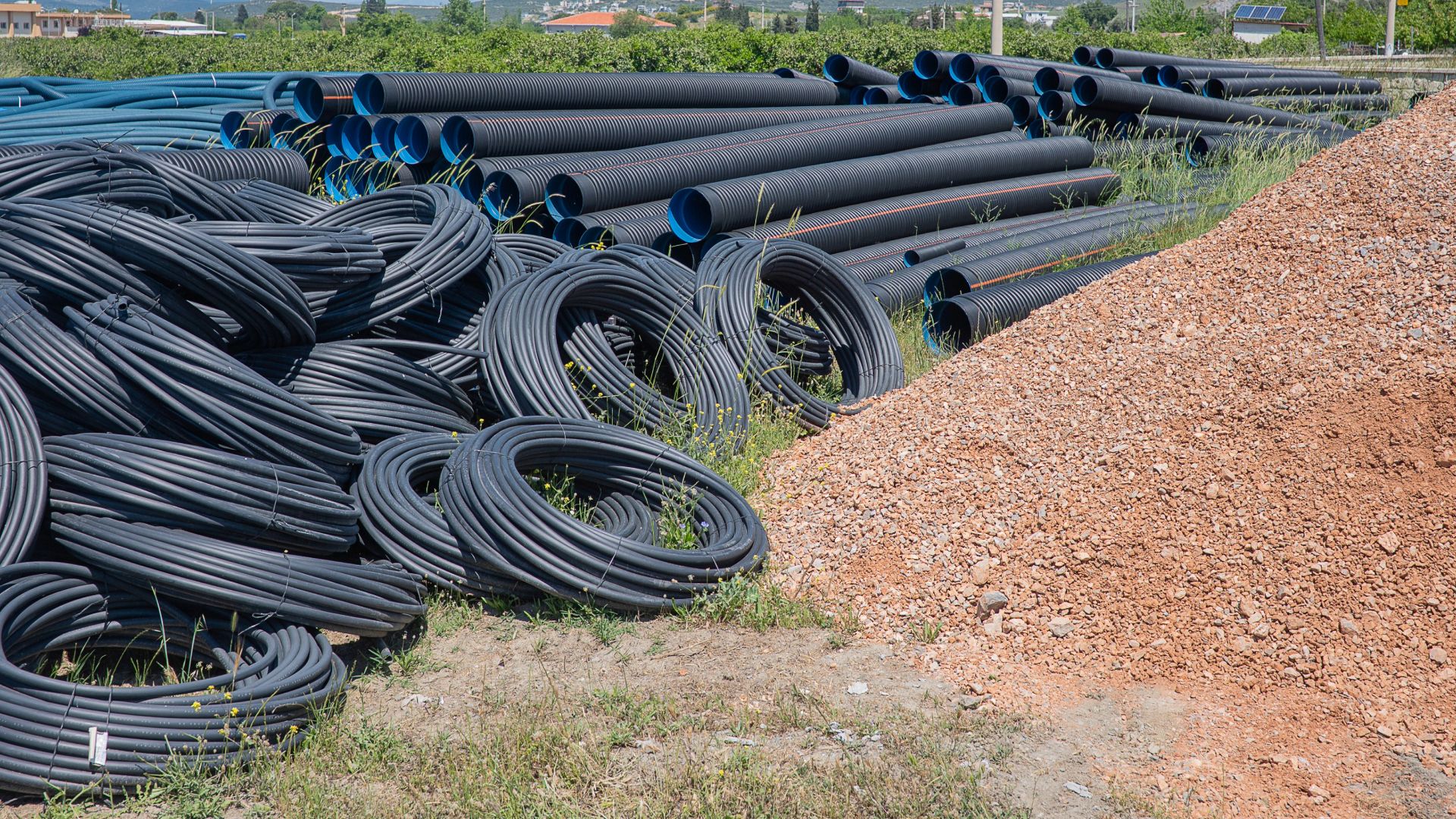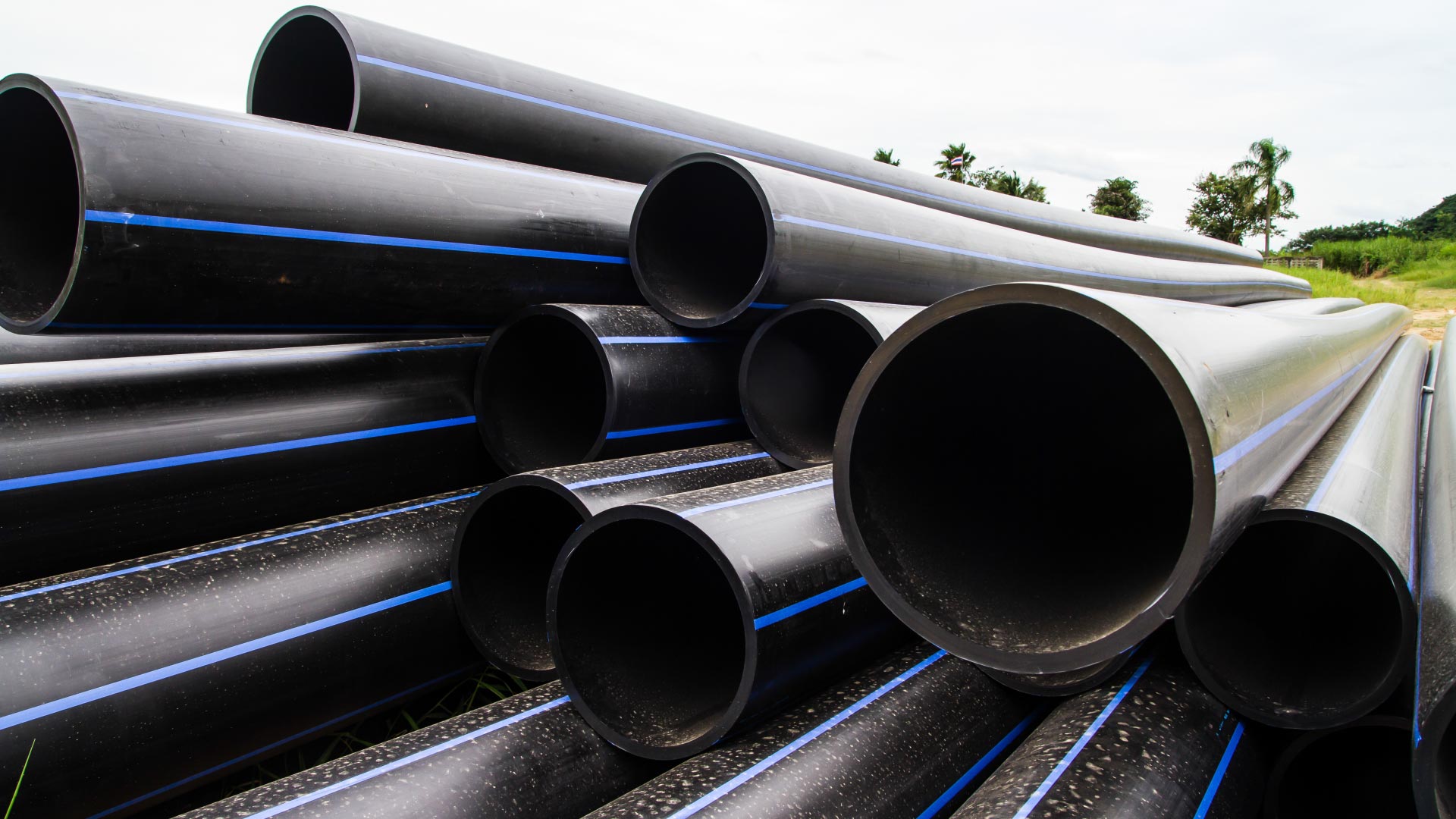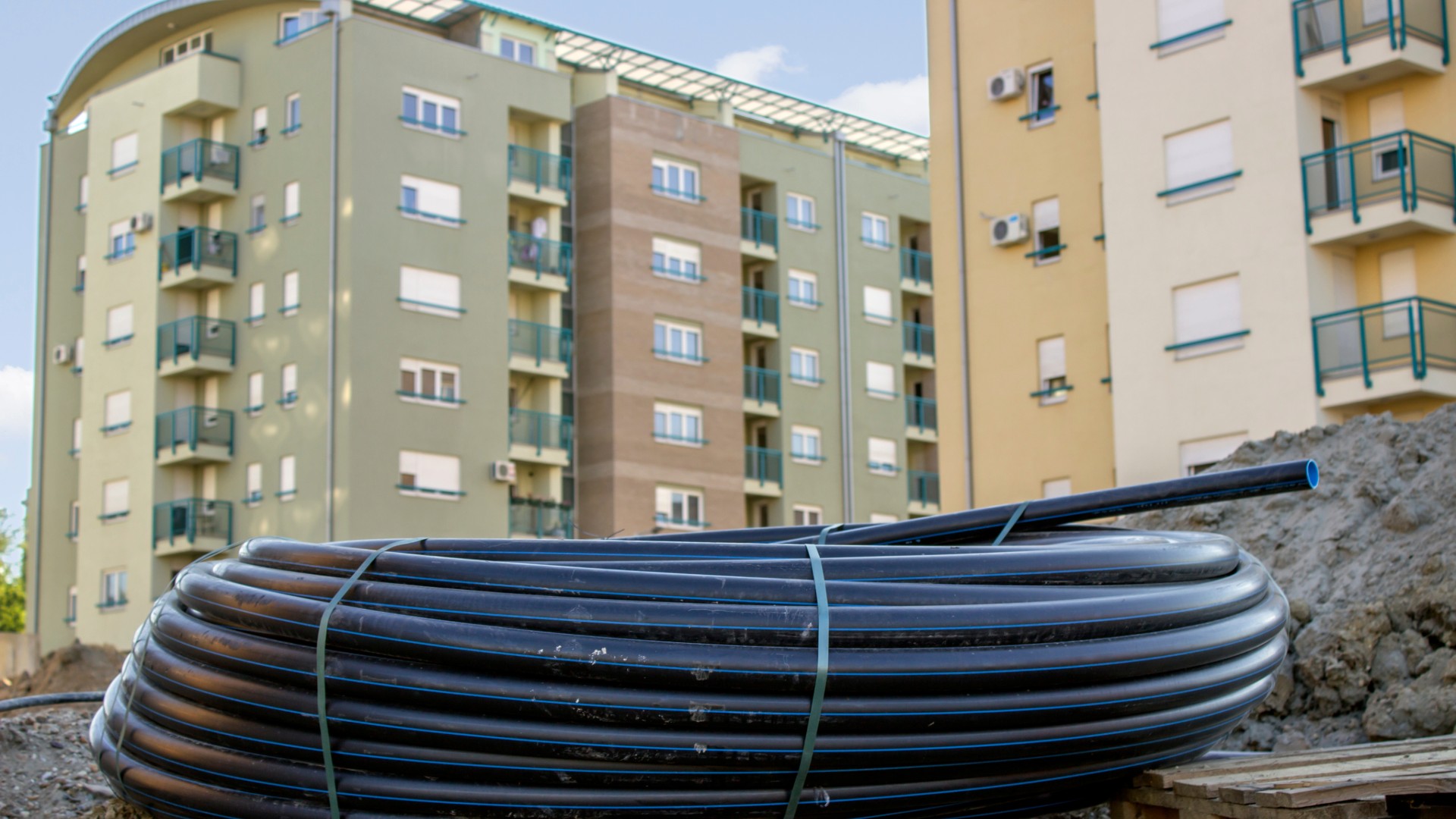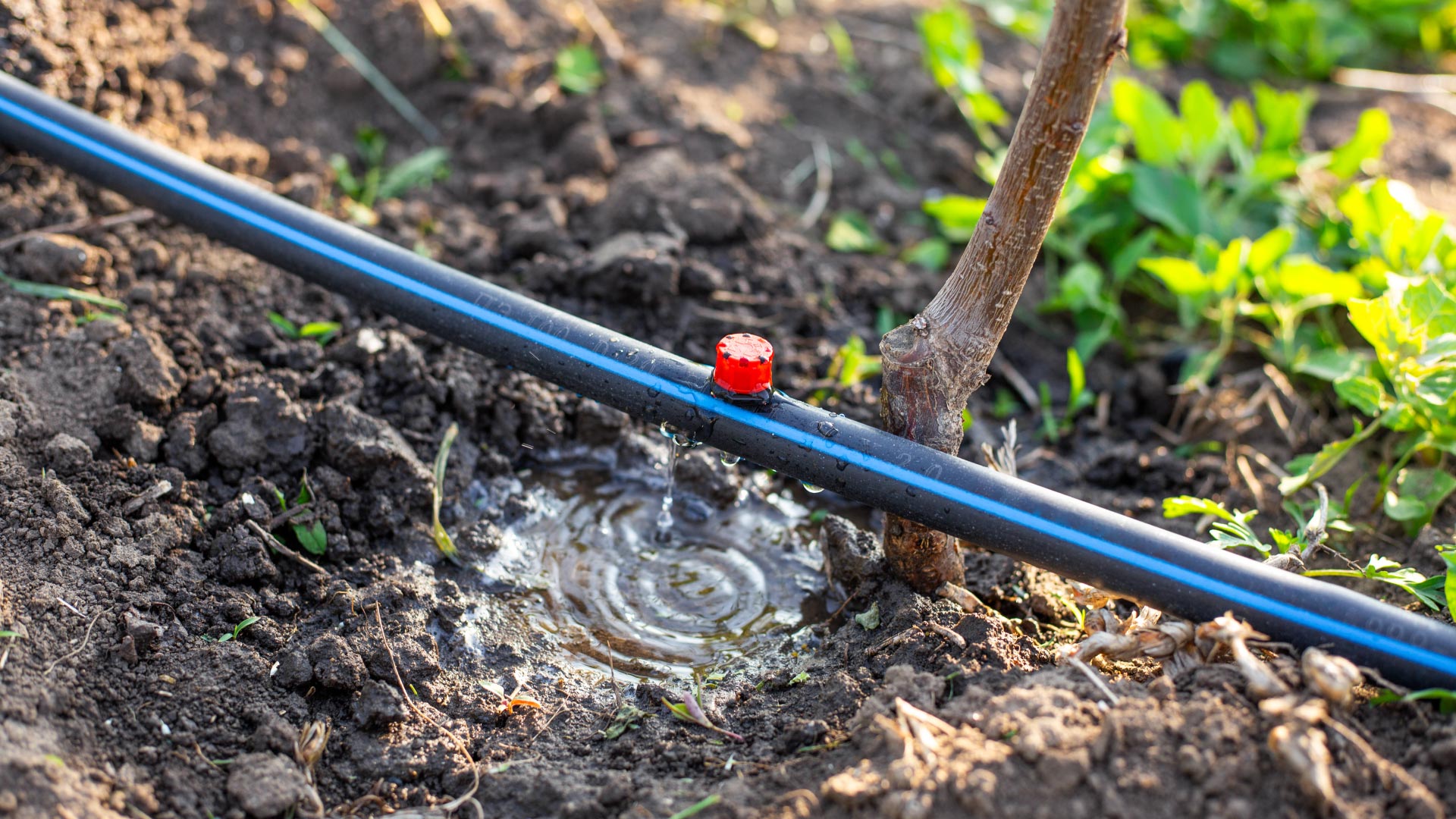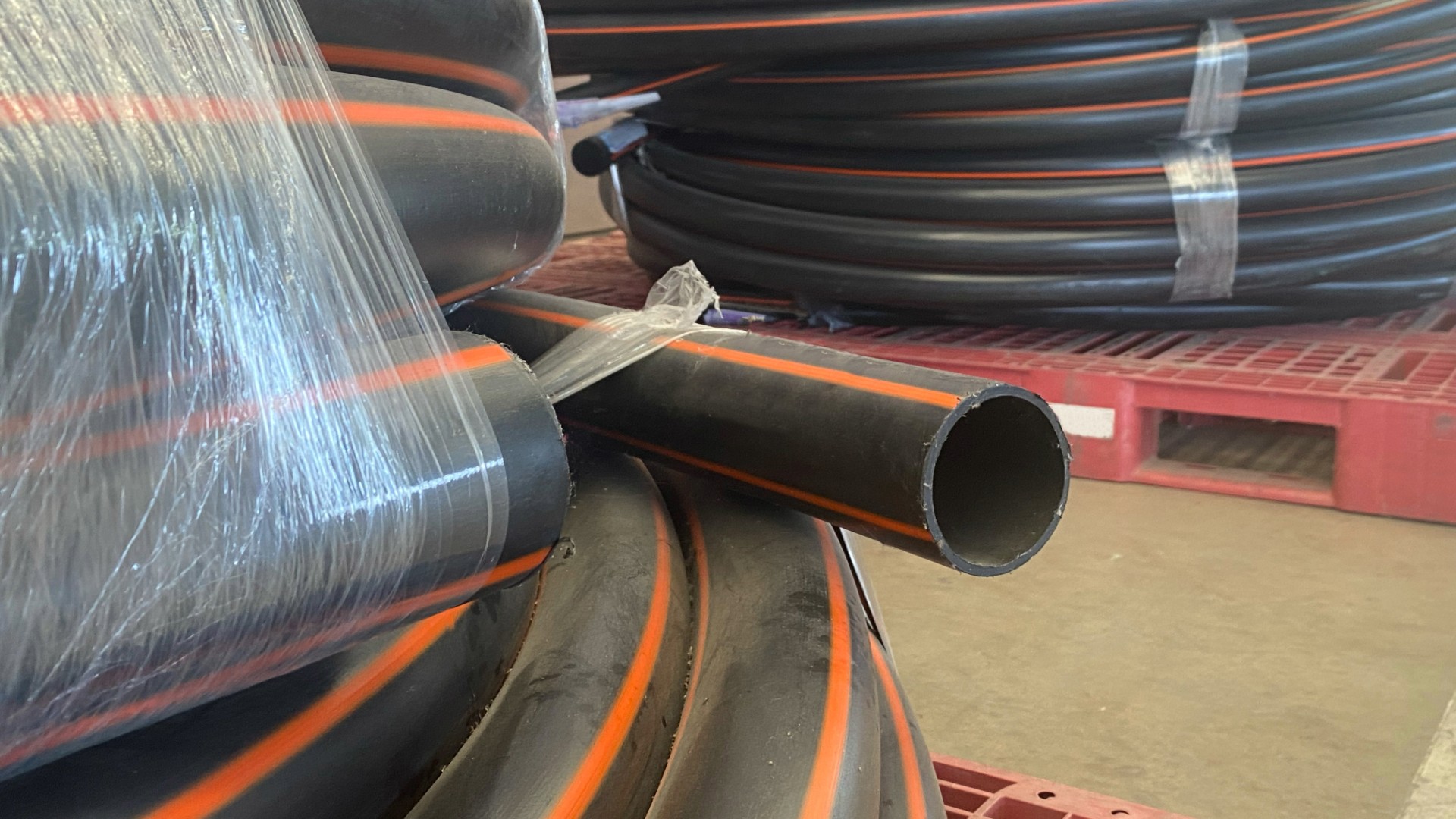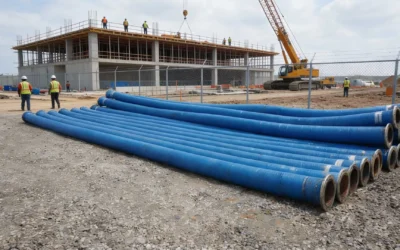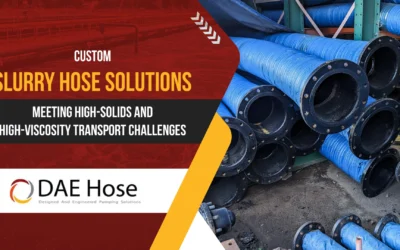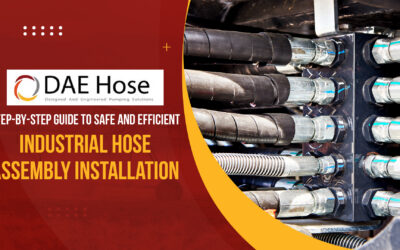HDPE irrigation pipe is changing the way farmers manage water in their fields. With growing food demands and shrinking freshwater resources, efficient irrigation has become more crucial than ever. In many areas, unpredictable rainfall and declining groundwater levels make it challenging to maintain healthy crops. HDPE pipes offer a simple, durable, and reliable solution, delivering water evenly across farms while reducing waste and conserving resources. They’ve quickly become a trusted choice for modern farmers looking to grow more with less water.
The HDPE irrigation pipe is designed to deliver high performance under diverse environmental conditions, providing farmers and contractors with a reliable method for managing water distribution to crops, orchards, and plantations. Unlike traditional materials that are prone to corrosion and leakage, the HDPE irrigation pipe provides superior strength, flexibility, and chemical resistance, ensuring uninterrupted operation across decades of service. Its leak-proof joints significantly reduce water loss, contributing directly to the conservation goals that define modern sustainable agriculture.
In precision irrigation systems such as HDPE drip irrigation pipe networks, the material’s smooth internal surface ensures uniform water flow, enabling plants to receive optimal hydration with minimal energy use. This precision helps improve crop yields while cutting operational costs, making it a preferred choice for both large-scale agricultural projects and government-backed irrigation schemes.
When evaluating infrastructure investments, many procurement heads and project managers compare the HDPE irrigation pipe price against its lifecycle advantages, long-term durability, low maintenance, and reduced pumping costs. In most cases, the HDPE irrigation pipe proves to deliver a better return on investment than conventional PVC or metal piping systems. For sustainable agriculture initiatives aiming to maximize resource efficiency and reliability, both HDPE irrigation pipe and HDPE drip irrigation pipe systems represent the future of smart, responsible water management.
What Is an HDPE Irrigation Pipe?
AnHDPE irrigation pipe price is built from high-density polyethylene is a high-performance conduit designed to effectively transfer water in agricultural, horticultural, and landscaping situations. Its superior strength and flexibility enable it to withstand external pressure, soil movement, and exposure to sunlight, making it suitable for both surface and subterranean irrigation systems. Its corrosion-resistant and chemically inert structure enables consistent performance even in harsh field conditions where standard materials frequently fail.
The pipe’s smooth inner surface reduces friction losses, resulting in steady flow rates and uniformly distributed water to crops. When incorporated into current precision irrigation networks, it directs water to the plant root zone, decreasing evaporation and improving effective nutrient absorption. This customized delivery technology not only increases crop yields but also promotes sustainable agricultural practices by reducing water use.
For agricultural planners and infrastructure developers, the HDPE irrigation pipe price represents a cost-effective investment over its operational lifespan. Although initial installation costs may vary depending on project scale and pipe specifications, the long-term savings in maintenance, water efficiency, and energy consumption provide an excellent return on investment. The material also meets global standards for potable water safety, ensuring that irrigation systems remain free from contamination and safe for agricultural use.
Whether used for open-field irrigation, greenhouse horticulture, or government-sponsored water projects, this method is crucial to the development of long-lasting, leak-proof, and sustainable irrigation infrastructure for modern agriculture.
Technical Advantages of HDPE Irrigation Pipes
The HDPE irrigation pipe price offers a combination of mechanical strength, flexibility, and long-term reliability, making it a cornerstone of modern agricultural water distribution systems. Designed to perform in a wide range of soil and climate conditions, this pipe ensures consistent irrigation performance with minimal maintenance. Below are some of its key technical advantages that make it indispensable in sustainable farming applications.
Exceptional Durability and Service Life
The HDPE irrigation pipe is engineered to resist corrosion, scaling, and chemical attack from fertilizers or pesticides commonly used in the field. With a typical lifespan of over 50 years under proper installation, it significantly reduces the frequency of replacement and operational interruptions. Its toughness against impact and environmental stress makes it ideal for both small and large-scale agricultural infrastructure. Even in harsh terrains, the HDPE irrigation pipe maintains structural integrity, ensuring uninterrupted water delivery.
Flexibility and Simplified Installation
Unlike stiff PVC or metal pipes, HDPE irrigation pipe is readily coiled and put across uneven terrain, lowering labor costs and installation time. This versatility is especially useful for contractors operating in diverse terrains or isolated agricultural areas. The pipe’s lightweight design enables speedier deployment while reducing transportation problems, further decreasing total project costs.
Leak-Proof and Maintenance-Free Operation
A significant feature of HDPE irrigation pipe is its seamless connecting technique. The pipe generates monolithic, leak-proof joints using butt fusion or electrofusion processes, eliminating frequent failure areas seen in mechanical connections. When used in HDPE drip irrigation pipe networks, this leak-free performance ensures accurate water distribution directly to plant roots, reducing waste and enhancing irrigation uniformity.
Energy and Water Efficiency
The smooth interior surface of the HDPE irrigation pipe minimizes flow resistance, resulting in lower energy requirements for pumping. Over time, this results in significant savings on electricity and operational costs, particularly in large irrigation projects. Farmers and engineers often find that the HDPE irrigation pipe price, when weighed against the long-term energy savings it provides, offers a strong value proposition. Combined with the precision control of HDPE drip irrigation pipe systems, it supports up to 50% water conservation compared to traditional irrigation methods.
Resistance to Environmental Stress
Designed for all-season performance, the HDPE irrigation pipe resists degradation from ultraviolet radiation and soil chemicals. It performs reliably under varying temperature and pressure conditions, making it suitable for open-field farms, greenhouses, and industrial irrigation systems alike. For sustainable water infrastructure projects that demand longevity and minimal upkeep, the HDPE irrigation pipe remains a proven and technically superior choice.
Environmental and Economic Benefits
The HDPE irrigation pipe price reflects more than just the cost of materials; it represents long-term environmental and financial gains for modern agriculture. By combining energy-efficient design with sustainable material sourcing, HDPE-based irrigation systems deliver measurable benefits that align with global goals for climate-smart farming. Decision-makers evaluating infrastructure investments increasingly consider the HDPE irrigation pipe price as an indicator of both durability and eco-performance.
Lower Carbon and Resource Footprint
Compared to PVC or metal equivalents, HDPE pipe manufacturing requires significantly less energy and emits fewer greenhouse gases. The HDPE irrigation pipe price often indicates its premium eco-friendly production technique, which does not use dangerous chemicals like chlorine or phthalates. Its recyclability promotes the circular economy by allowing existing HDPE irrigation pipe prices to be reused rather than being wasted. When incorporated into HDPE drip irrigation pipe systems, the environmental benefits increase, resulting in decreased water waste, reduced energy consumption for pumping, and a lower carbon footprint throughout the irrigation cycle.
Long-Term Cost Savings
From an operational standpoint, the HDPE irrigation pipe price offers excellent value over time. Despite a marginally higher initial investment, its exceptional resistance to corrosion, leaks, and mechanical wear drastically reduces maintenance costs. Energy efficiency is another key factor; HDPE systems require less power for water flow due to lower friction losses, translating into noticeable savings on utility expenses. For farms, estates, and irrigation authorities, selecting a system based on HDPE irrigation pipe prices ensures both cost-effectiveness and long-term sustainability.
Sustainable Water Management
The HDPE irrigation pipe price is closely tied to its contribution to sustainable water management practices. In HDPE drip irrigation pipe applications, water is distributed directly to the root zone, eliminating unnecessary runoff and evaporation. This precision-based system supports higher crop yields with minimal water use, making it ideal for regions affected by drought or irregular rainfall. With a focus on responsible resource management, the HDPE irrigation pipe price ultimately reflects its enduring role in promoting efficient and sustainable agriculture.
HDPE vs. PVC: Which Is More Sustainable?
When evaluating irrigation materials, agricultural engineers and procurement specialists commonly compare new systems to old PVC options. While both materials have uses, HDPE solutions are well recognized for their sustainability, performance, and long-term value. HDPE irrigation pipe price indicates an investment in eco-efficiency, recyclability, and operational reliability, making it a great choice for long-term irrigation infrastructure.
Lower Environmental Impact
PVC manufacturing relies heavily on chlorine-based compounds that produce harmful byproducts such as dioxins. In contrast, HDPE materials are derived from non-toxic, food-grade polyethylene, making them safer and cleaner throughout their lifecycle. The HDPE irrigation pipe price also takes into account its recyclability, as these HDPE irrigation pipe price can be reprocessed without compromising material integrity or quality. When incorporated into HDPE drip irrigation pipe systems, they align with modern sustainability standards, offering reduced emissions and enhanced resource conservation for large-scale agricultural projects.
Longer Lifespan and Fewer Replacements
One significant advantage of HDPE-based systems is their longer service life. These HDPE Irrigation pipe price, which are resistant to cracking, corrosion, and UV deterioration, can survive for more than 50 years when built properly. This endurance reduces the need for replacements, saving on waste and preventing operating interruptions. Although HDPE irrigation pipes price are slightly more expensive than PVC alternatives, they require less maintenance and have a longer lifespan, resulting in significant long-term savings. The increased durability of HDPE drip irrigation pipe networks improves water distribution accuracy and project efficiency.
Energy Efficiency and Operational Reliability
HDPE systems feature a smooth interior surface that minimizes hydraulic friction, leading to improved water flow efficiency and reduced pumping energy requirements. In comparison, PVC pipes are more susceptible to scale and interior accumulation, which can result in higher operational expenses. The HDPE irrigation pipe price reflects a long-term return on investment, combining low energy consumption with dependable performance. In current agricultural setups, including HDPE drip irrigation pipe systems, the use of such systems promotes both environmental responsibility and cost-effective water management strategies.
Enabling Sustainable Irrigation Systems
The HDPE irrigation pipe is a vital component in transitioning to sustainable and precise agricultural systems. Its flexibility allows for easy integration with new irrigation technology, resulting in improved water distribution, higher crop yields, and lower operational costs. This material enhances environmental stewardship and agricultural production by supporting systems such as HDPE drip irrigation pipes and smart irrigation networks.
Drip and Micro-Irrigation Integration
Modern agriculture increasingly relies on HDPE irrigation pipe networks for drip and micro-irrigation systems, which deliver water directly to the plant root zone. This method minimizes evaporation, runoff, and deep percolation losses, ensuring that every drop of water is used efficiently. The HDPE drip irrigation pipe, with its flexibility and smooth interior surface, provides uniform water flow across extensive farmland and uneven terrains. It supports precise moisture control, enabling crops to absorb water and nutrients more effectively—an essential factor in achieving higher yields with fewer resources.
Farmers and project contractors appreciate that the HDPE irrigation pipe price performs reliably under varying pressure and temperature conditions, maintaining consistent output even in challenging climates. Its fusion-bonded joints eliminate leak points, making the system highly dependable for long-term agricultural use. When evaluating systems for large-scale irrigation projects, the HDPE irrigation pipe price reflects not only material cost but also the lifetime value it delivers through reduced water waste and maintenance efficiency.
Smart Irrigation Compatibility
The HDPE irrigation pipe is well-suited for integration with automated irrigation systems that use sensors, timers, and data-driven controls. Such smart systems regulate water delivery based on soil moisture levels, weather forecasts, and crop requirements. The durability and smooth flow characteristics of the HDPE irrigation pipe price ensure consistent performance under these automated conditions, reducing both energy and labor inputs.
When paired with HDPE drip irrigation pipe setups, smart irrigation systems can achieve up to 50% water savings compared to conventional methods while maintaining optimal crop health. These efficiencies not only support sustainable agricultural practices but also contribute to measurable cost reductions for farms, cooperatives, and public irrigation authorities. From precision farming to national water conservation programs, the HDPE irrigation pipe price continues to prove its value as a reliable and sustainable choice for modern irrigation infrastructure.
Why DAE Hose HDPE Irrigation Pipes Stand Out
As a leader in industrial and agricultural piping solutions, DAE Hose delivers advanced systems engineered for performance, efficiency, and long-term reliability. Each product is built using high-quality, food-grade polyethylene and precision extrusion techniques, ensuring superior mechanical strength and consistent durability. Designed for both large-scale agricultural projects and municipal applications, DAE Hose’s systems perform seamlessly across open-field, greenhouse, and HDPE drip irrigation pipe setups.
DAE Hose adheres to strict global manufacturing and quality control standards, ensuring every product meets international benchmarks for UV resistance, chemical stability, and pressure rating. This guarantees dependable performance in diverse soil and weather conditions, minimizing downtime and maintenance expenses. For clients managing complex irrigation infrastructure, whether government-sponsored or private agribusiness, DAE Hose offers proven reliability and operational efficiency.
In precision irrigation applications, DAE Hose’s HDPE drip irrigation pipe solutions integrate effortlessly with automated and smart irrigation systems. These designs help optimize water distribution, reduce energy use, and improve yield outcomes, critical advantages for sustainable agriculture and efficient water resource management.
Equally important, DAE Hose maintains transparency and project value through a competitive HDPE irrigation pipe price structure. Each system reflects a balance of premium material quality, reduced maintenance demands, and extended service life, ensuring long-term ROI. Clients also benefit from expert technical consultation and tailored engineering support, ensuring every installation meets specific performance and sustainability targets.
By combining advanced materials, engineering precision, and customer-focused service, DAE Hose continues to set the industry benchmark for HDPE drip irrigation pipe and related systems that drive sustainable farming and efficient water management.
Building Sustainable Agriculture Through Smart Infrastructure
The HDPE irrigation pipe has become a cornerstone of modern, sustainable agriculture, combining durability, efficiency, and environmental responsibility. Its long service life and leak-proof performance reduce maintenance costs while ensuring consistent water delivery to crops. When paired with HDPE drip irrigation pipe systems, it enables precision watering that conserves resources and improves yield quality.
For procurement heads and project planners, the HDPE irrigation pipe price offers long-term value far beyond its initial cost, supporting measurable ROI and operational reliability. As global agriculture shifts toward smarter, more resource-efficient systems, HDPE irrigation pipe solutions, such as those engineered by DAE Hose, are setting the standard for sustainable water management and resilient farming infrastructure.

